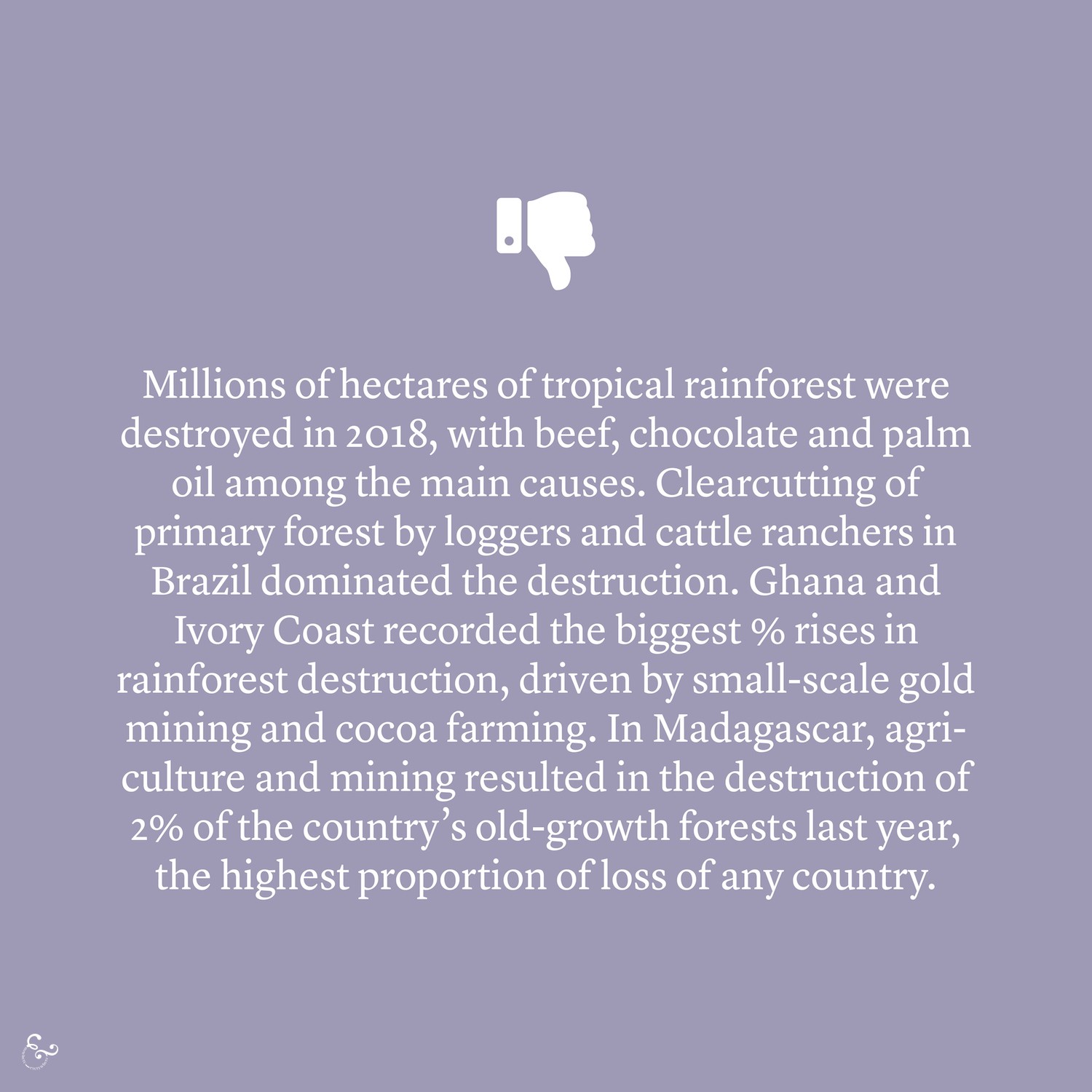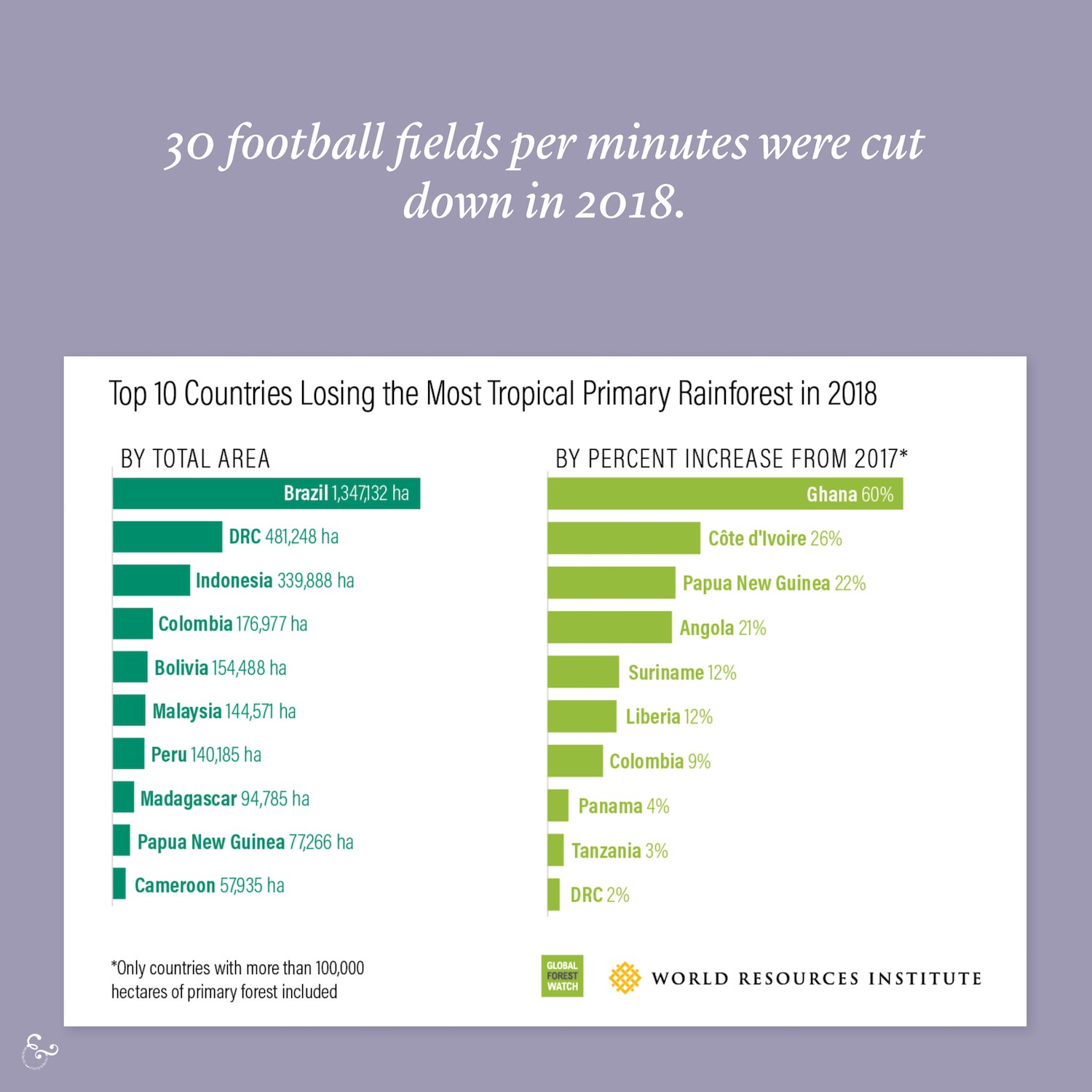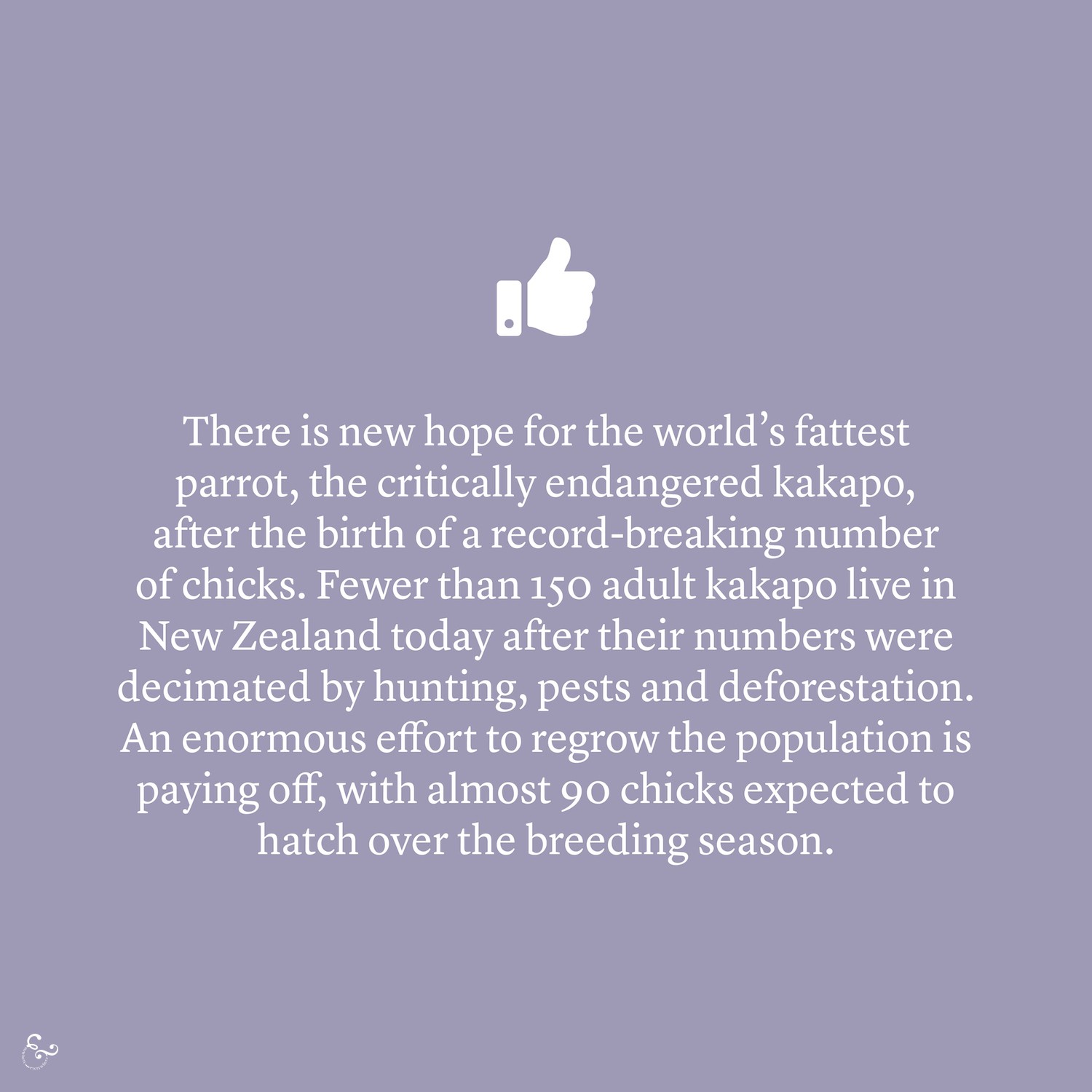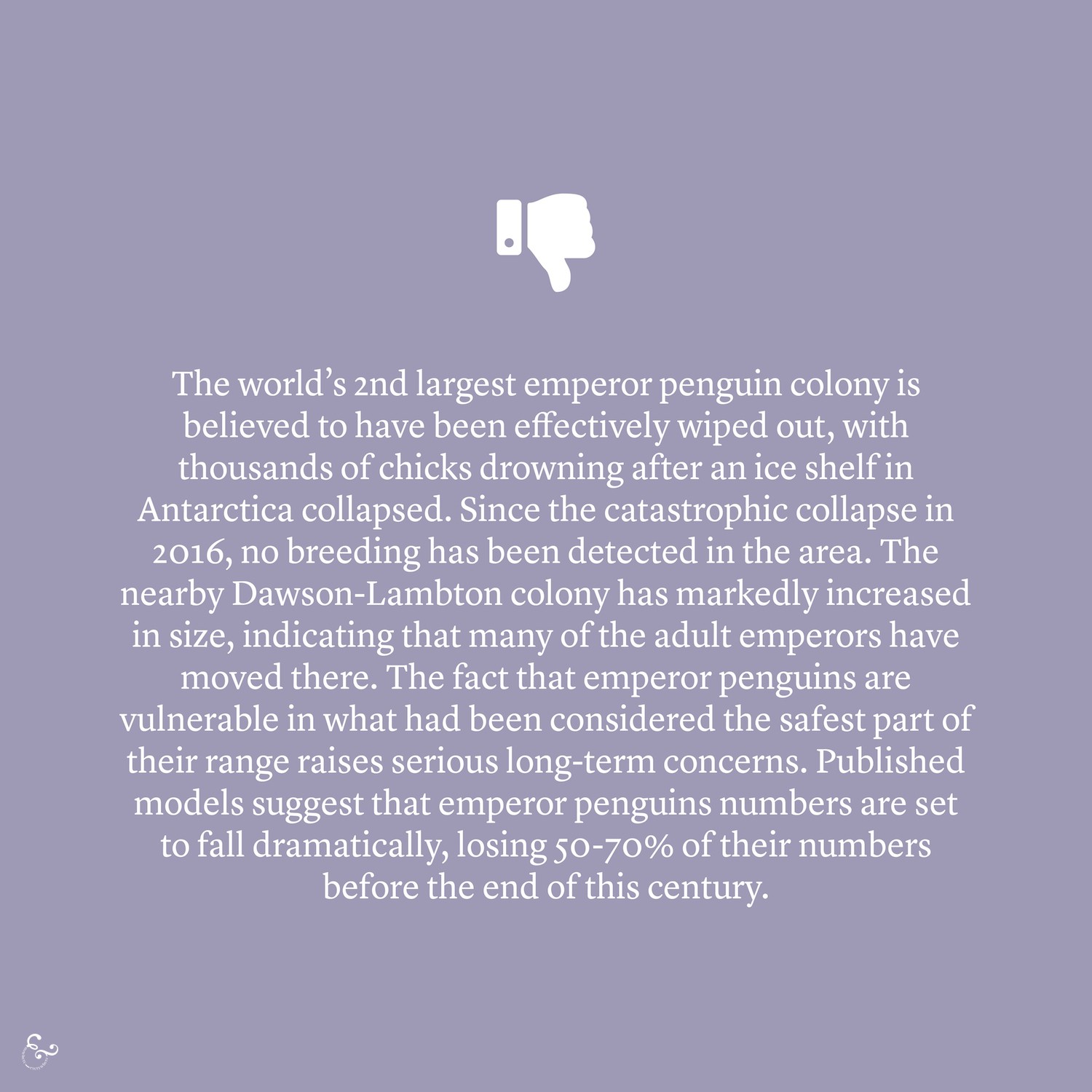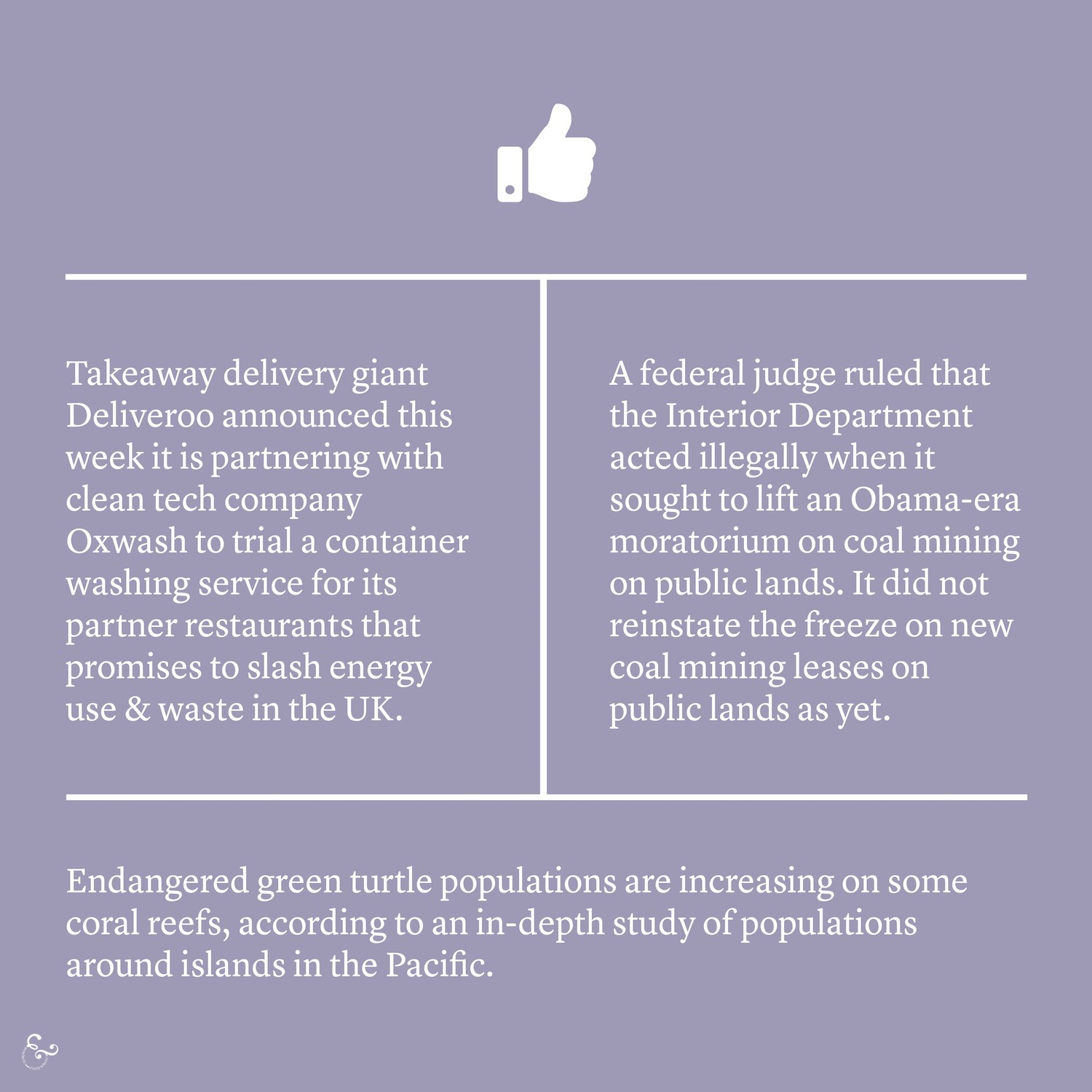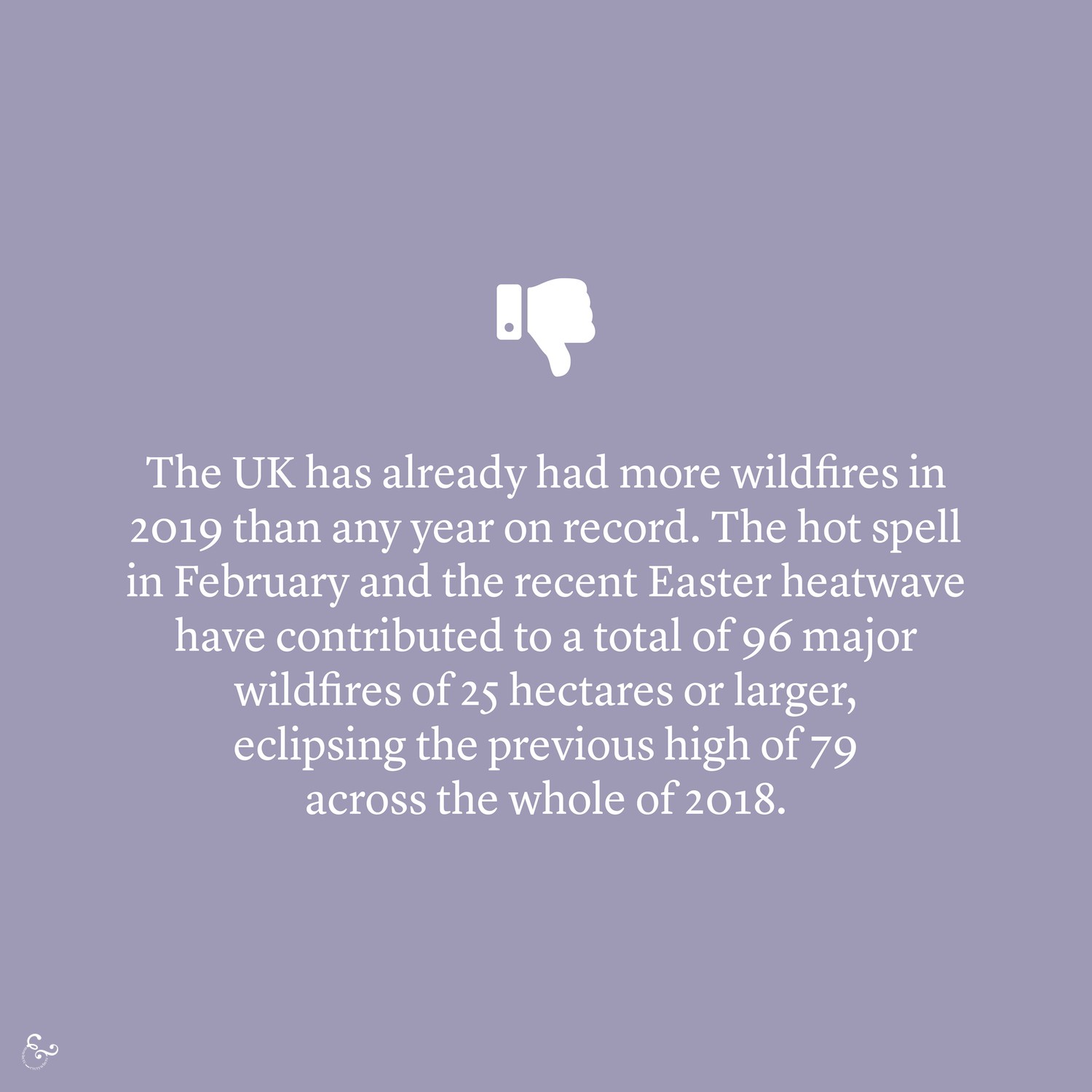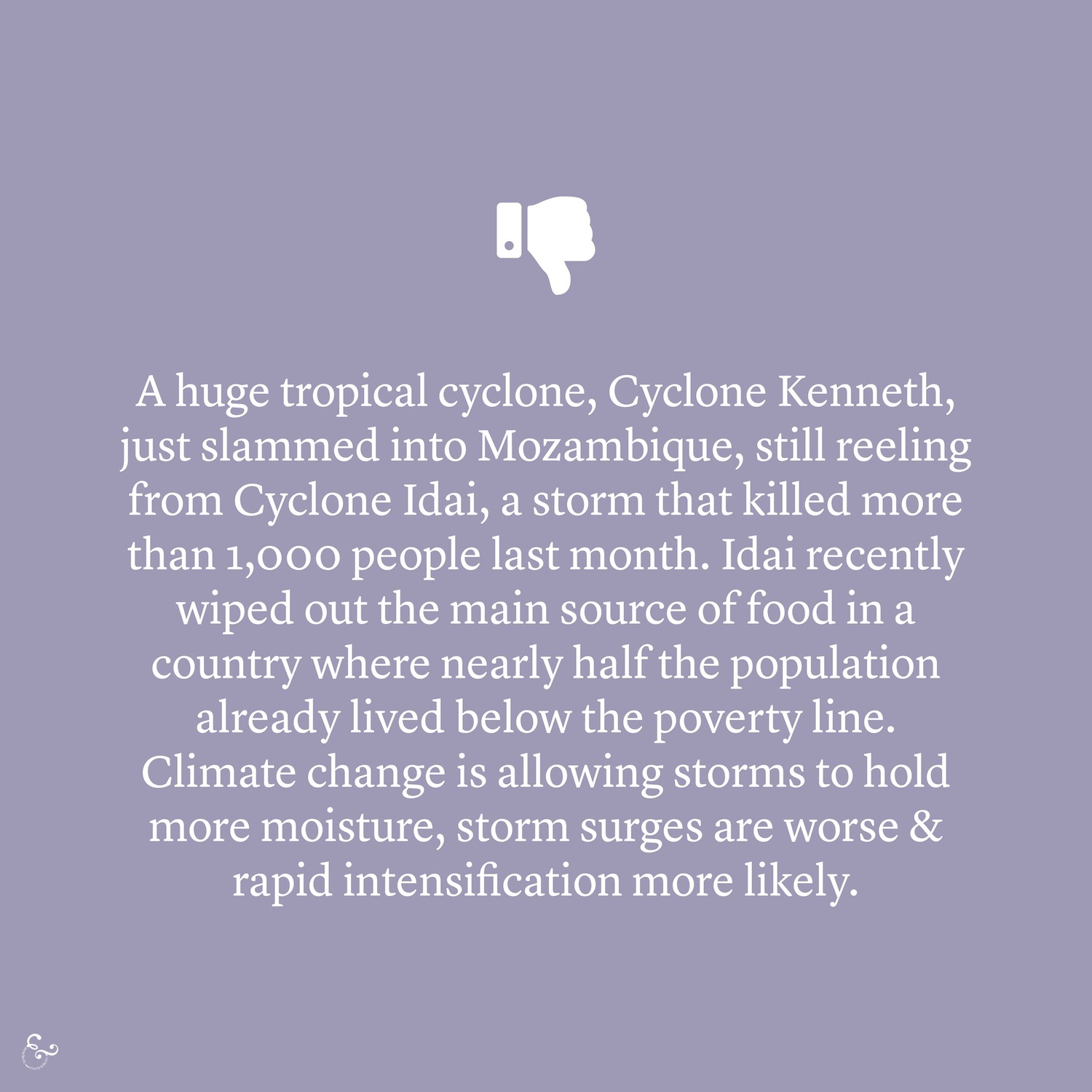World / Animals
1/ Up to one million species face extinction due to human influence, according to a draft UN report obtained by AFP that painstakingly catalogues how humanity has undermined the natural resources upon which its very survival depends, set to be unveiled May 6. Three-quarters of land surfaces, 40% of the marine environment, and 50% of inland waterways across the globe have been “severely altered”. (France24)
Mozambique / Climate Change
2/ A huge tropical cyclone, Cyclone Kenneth, with winds above 125 mph just slammed into Mozambique, still reeling from Cyclone Idai, a storm that killed more than 1,000 people last month. Idai recently wiped out the main source of food in a country where nearly half the population already lived below the poverty line. Almost 3,000 square miles of farmland were destroyed, weeks before the annual harvest. Kenneth is expected to push 10 feet of water on shore in a storm surge, a form of flooding that is exacerbated by sea-level rise. And some areas in the northeastern region of the country could possibly see 40 inches of rain. Climate change is allowing storms to hold more moisture. Sea level rise means that storm surges are also worse, and there’s some emerging evidence that climate change makes the rapid intensification of storms more likely. (Vox / BBC / NYT)
World / Environment
3/ Millions of hectares of pristine tropical rainforest were destroyed in 2018, according to satellite analysis, with beef, chocolate and palm oil among the main causes. This was less than 2016 & 2017 when mass wildfires hit due to dry conditions. Clearcutting of primary forest by loggers and cattle ranchers in Brazil dominated the destruction, including invasions into indigenous lands where uncontacted tribes live. Losses were also high in the DRC and Indonesia (thought programs are working here). Ghana and Ivory Coast recorded the biggest percentage rises in rainforest destruction, driven by gold mining and cocoa farming. In Madagascar, agriculture and mining resulted in the destruction of 2% of the country’s old-growth forests last year, the highest proportion of loss of any country. 12 million hectares of forest, was cut down in 2018, equivalent to 30 football fields per minute. (The Guardian / NYT / BBC / Global Forest Watch)
World / Animals
4/ Frogs, salamanders, and toads across the world are now under attack from a widening range of interacting pathogens that threaten to devastate global amphibian populations. 30 years ago experts noticed that amphibian populations were plunging in different areas of the world. At least 100 species have since been wiped off the face of the planet. Apart from the straightforward loss of species, reducing amphibian numbers is harmful to the environment because frogs, newts and toads play an important role in maintaining healthy ecosystems. For example, frogs eat mosquitos that spread disease. They also provide food for birds and other animals. In addition, tadpoles chew up algae and so help keep algal blooms at bay. (The Guardian)
United Kingdom / Environment
5/ The UK has already had more wildfires in 2019 than any year on record. The hot spell in February and the recent Easter heatwave have contributed to a total of 96 major wildfires of 25 hectares or larger, eclipsing the previous high of 79 across the whole of 2018. The wildfires are no longer confined to the traditional season of fires from late March to late September. (New Scientist / BBC / The Guardian / Metro / Gizmodo)
World / Animals
6/ The world’s second largest emperor penguin colony is believed to have been effectively wiped out overnight, with thousands of chicks drowning after an ice shelf in Antarctica collapsed. Since the catastrophic collapse of the ice sheet at Halley Bay in 2016, no breeding has been detected in the area. Usually 15,000 to 24,000 breeding pairs of emperor penguins flock each year to the breeding site – around 5-9% of the entire global emperor penguin population. The nearby Dawson-Lambton colony has markedly increased in size, indicating that many of the adult emperors have moved there, seeking better breeding grounds as environmental conditions. The fact that emperor penguins are vulnerable in what had been considered the safest part of their range raises serious long-term concerns. Published models suggest that emperor penguins numbers are set to fall dramatically, losing 50-70% of their numbers before the end of this century. (Independent / NYT)
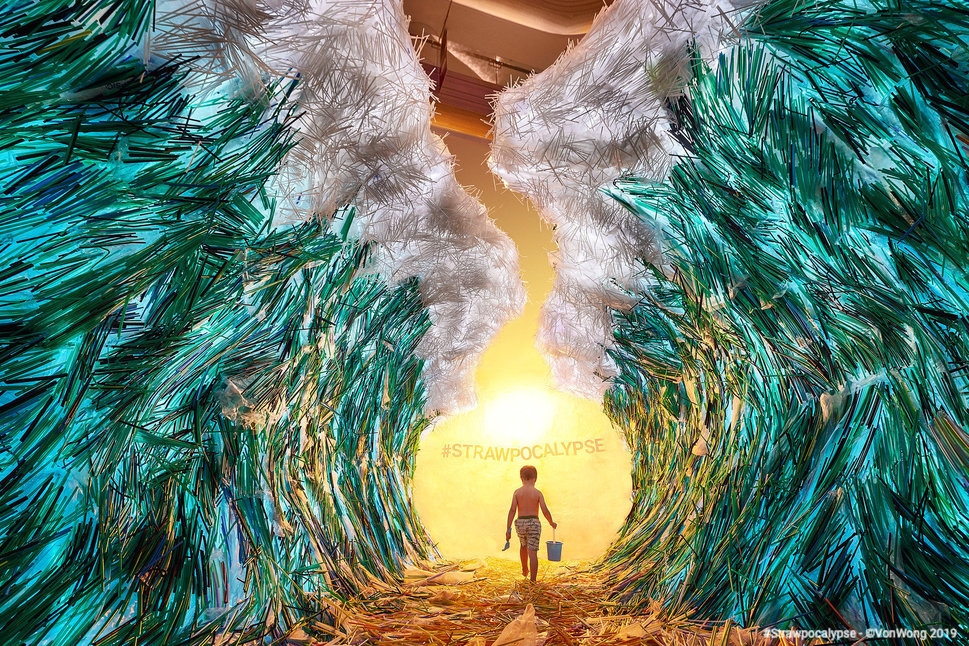
At the end of January, the artist Benjamin Von Wong built a piece called “Strawpocalypse,” a stunning pair of 10-foot-tall plastic waves, frozen mid-crash. Comprised of 168,000 plastic straws collected from several volunteer beach cleanups, the installation made its debut at the Estella Place shopping mall in Ho Chi Minh City, Vietnam. (Huffington Post)
The good news…
New Zealand / Animals
1/ There is new hope for the world’s fattest parrot, the critically endangered kakapo, after the birth of a record-breaking number of chicks. Fewer than 150 adult kakapo live in New Zealand today after their numbers were decimated by hunting, pests and deforestation. But an enormous effort to regrow the population is paying off, with almost 90 chicks expected to hatch over the breeding season. (New Scientist)
United Kingdom / Animals
2/ The UK government has announced it will provide £4.6 million in funding for projects tackling illegal wildlife trade around the world. They include efforts to stop smuggling in Madagascar, to disrupt the grey parrot trade in Cameroon and to reduce demand for marine turtle products in Nicaragua. The government is also drawing on expertise in behaviour change science to recommend the most effective approaches to reduce demand for illegal wildlife products, such as environmental education and social marketing. Another initiative has brought together conservationists and engineers to develop new technological tools to combat wildlife crime, with support from Google. (New Scientist)
United Kingdom / Climate Change
3/ More than 1,000 people have been arrested at Extinction Rebellion climate protests in London, police have said, in what organisers described as the biggest civil disobedience event in recent British history. The teenage climate activist Greta Thunberg spoke to crowds at the site on Sunday. (The Guardian / Vox)
Other notables…
- Despite what they say, the new Starbucks coffee cup lid (to eliminate straws), which is being slowly rolled out in the US & Canada only isn’t that environmentally friendly. Whilst the revamped plastic lid can theoretically be repurposed into new products, the reality is that it almost certainly will not be recycled. The lids are made from polypropylene, only 5.1% of which was recycled in the U.S. in 2015 (before China shut the door to much of this plastic waste). (The Intercept)
- Botanists have embarked on a mountaintop rescue mission in far north Queensland’s Wet Tropics World Heritage Area to collect and record plant species at risk from climate change. The mountain ranges of the far north are home to about 70 endemic species that rely on cooler climates. Over the next five years scientists, together with Western Yalinji Indigenous rangers, will collect target species including tiny orchids, huge trees and Australia’s only native rhododendrons. (ABC)
7 things we’ve learned about Earth since the last Earth Day. We continue to shape life on Earth, and threaten our survival, in unexpected ways. (Vox)
Warming climate has grown UK economy 10% in past 50 years, but shrunk the poorest by a third, study says. Big emitters like UK, Norway and Canada have seen economic benefits of warming temperatures since 1960, while nations like Sudan and India have suffered. The world’s lowest emitters over the past 50 years have seen their GDP fall by around 25%. (Independent)
- Takeaway delivery giant Deliveroo announced this week it is partnering with clean tech company Oxwash to trial a container washing service for its partner restaurants that promises to slash energy use, waste, and environmental impacts in the UK. (Business Green)
- Endangered green turtle populations are increasing on some coral reefs, according to an in-depth study of populations around islands in the Pacific. While this is welcome news, the authors noted that despite some protective measures beginning in the 1970s, “current populations are still at a fraction of historic levels”. (Independent)
A pod of orcas is starving to death. The Lummi Nation is dropping live salmon into the sea in a last-ditch rescue effort. The population of southern resident orca has dropped to just 75 as a result of pollution in their environment, ship noise that drowns out their sonic communication and hinders their hunting, and, most crucially, a paucity of wild Chinook. Older whales have been seen wasting away, miscarriages are on the rise, and infant orca born alive are not surviving to adulthood. (The Guardian)
- This week marks 5 years since the Flint water crisis began and it’s still not over; residents continue to drink bottled water. (NYT)
- A federal judge delivered a significant setback to the Trump administration’s policy of promoting coal, ruling that the Interior Department acted illegally when it sought to lift an Obama-era moratorium on coal mining on public lands. (NYT)

